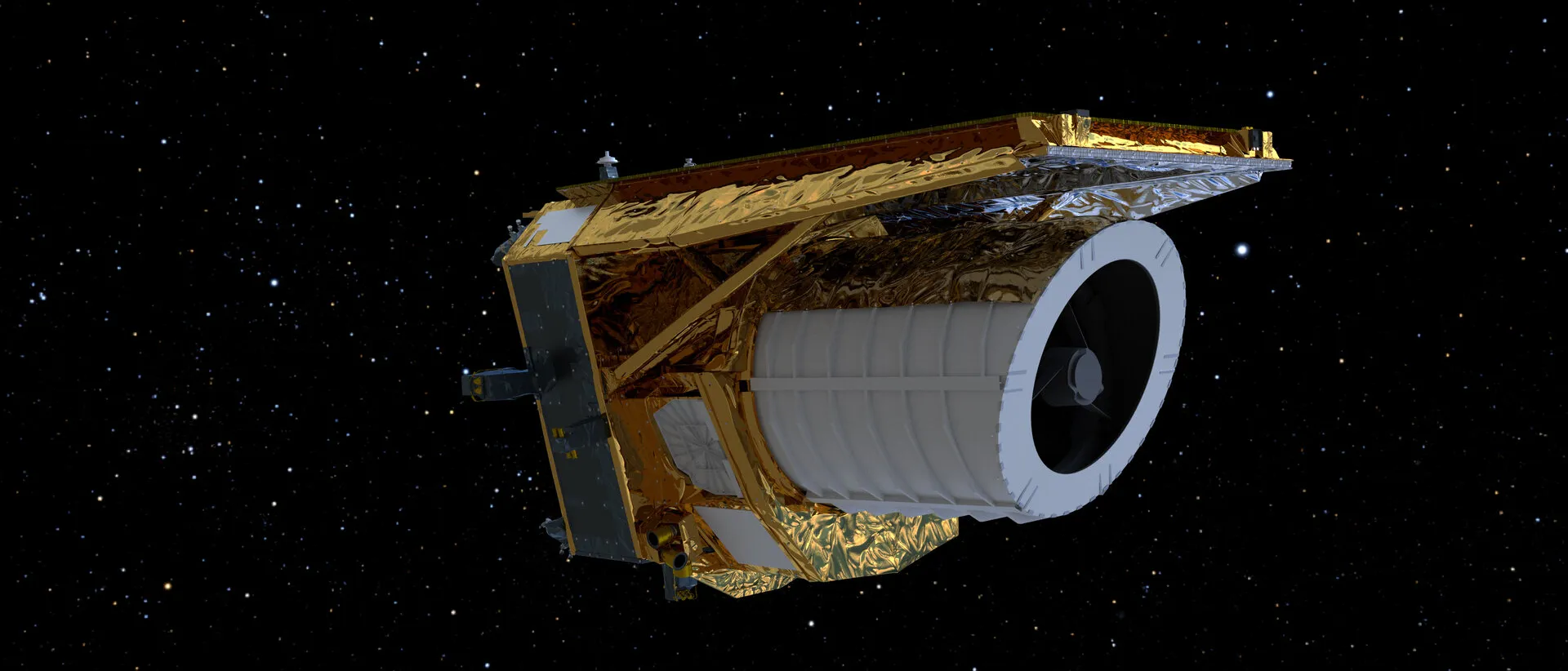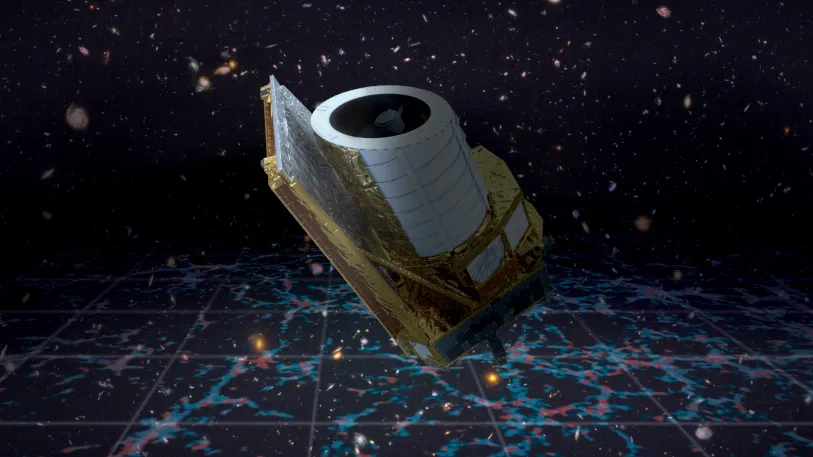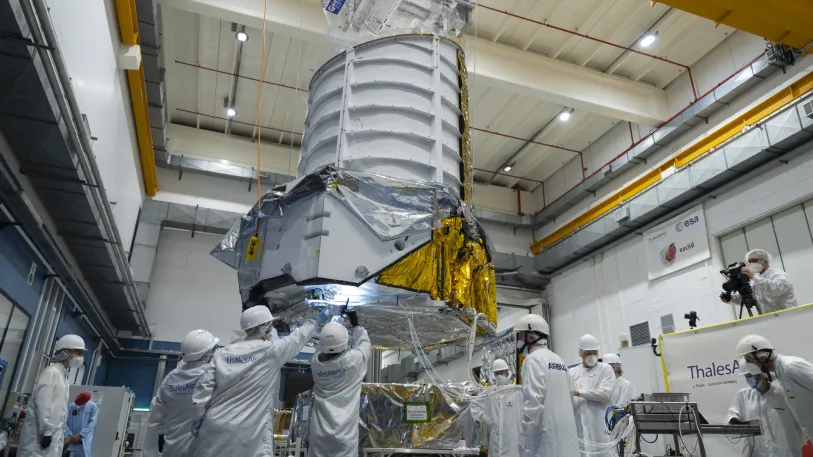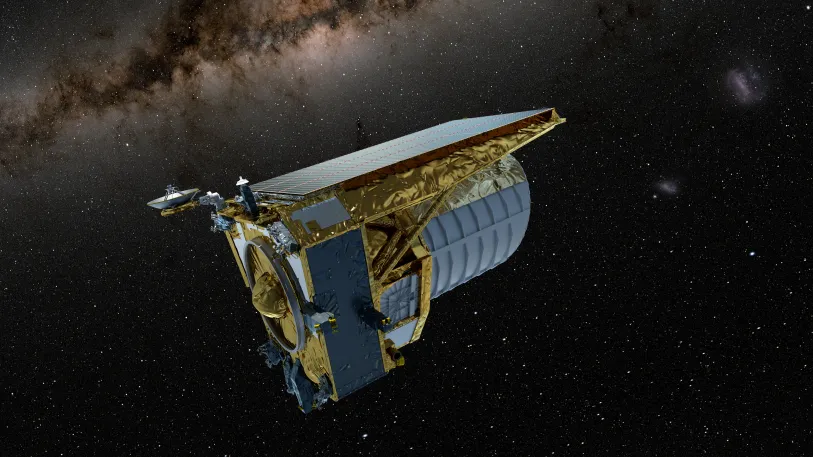
28.06.2023
Europe’s Euclid telescope controlled by Beyond Gravity computer
Beyond Gravity, a leading supplier to the space industry, provided key products for Europe’s Euclid space telescope. The space observatory is controlled by a computer and protected by thermal insulation from Beyond Gravity.
The Euclid telescope is scheduled for launch on July 1 aboard a SpaceX Falcon9 rocket from Cape Canaveral, Florida, USA. The European Space Agency (ESA) mission is designed to explore the composition and evolution of the dark Universe. The space telescope will create a great map of the large-scale structure of the Universe across space and time by observing billions of galaxies. Beyond Gravity, a leading space supplier, delivered various key products for this mission: “Euclid will help humankind to better understand some of greatest mysteries of the universe. As a key supplier, we have delivered various products like the satellite computer and the thermal protection that enable the smooth operation of this mission”, says André Wall, CEO Beyond Gravity. The prime contractor of the Euclid mission on behalf of ESA is Thales Alenia Space.
Computer from Beyond Gravity controls Euclid spacecraft
Beyond Gravity developed and produced at its site in Gothenburg, Sweden, the On Board Computer for the Euclid spacecraft and is responsible for the complete Command and Data Management Subsystem, which controls the satellite platform (satellite bus) and collects operational data. The subsystem includes the computer, the interface to the satellite platform functions (for instance to the Euclid propulsion system), and a mass memory. “Our high-performance On Board Computer manages the spacecraft position and orbit, ensures that the spacecraft stays healthy, and communicates with the Earth,” explains Erika Hult, Director Electronics Engineering at Beyond Gravity in Gothenburg. During operation, the Euclid space observatory generates a large amount of data. The mass memory of the spacecraft, developed by Airbus Defense and Space, provides storage for the payload and spacecraft telemetry data on-board before transmission to Earth.
Thermal insulation protects the Euclid mission
Thermal insulation from Beyond Gravity will protect the space telescope and the platform it sits on from the extreme heat and cold in space. The thermal insulation consists of several layers of ultra-thin special plastic films. They are separated by sophisticated nettings that achieve a highly efficient insulation in the vacuum of space comparable to a brick wall of several meters thickness on Earth. “Our thermal insulation protects the Euclid telescope from temperatures ranging from plus 350 degrees Celsius and minus 190 degrees Celsius,” says Andreas Gottinger, the responsible project manager. Euclid’s mass in orbit will be two tons. The total mass of the thermal insulation alone is 38 kilograms. In total, more than 500 individual parts of the thermal insulation – developed and produced at the Austrian Beyond Gravity sites – were installed for the Euclid mission.
About Euclid
Euclid is a space telescope designed to explore the dark Universe. It will make a 3D-map of the cosmos by observing billions of galaxies out to 10 billion light-years, across more than a third of the sky. Euclid will tackle some of the most fundamental questions in cosmology: How did the Universe originate? Why is the Universe expanding at an accelerating rate? What is the nature of dark matter? What is dark energy?




